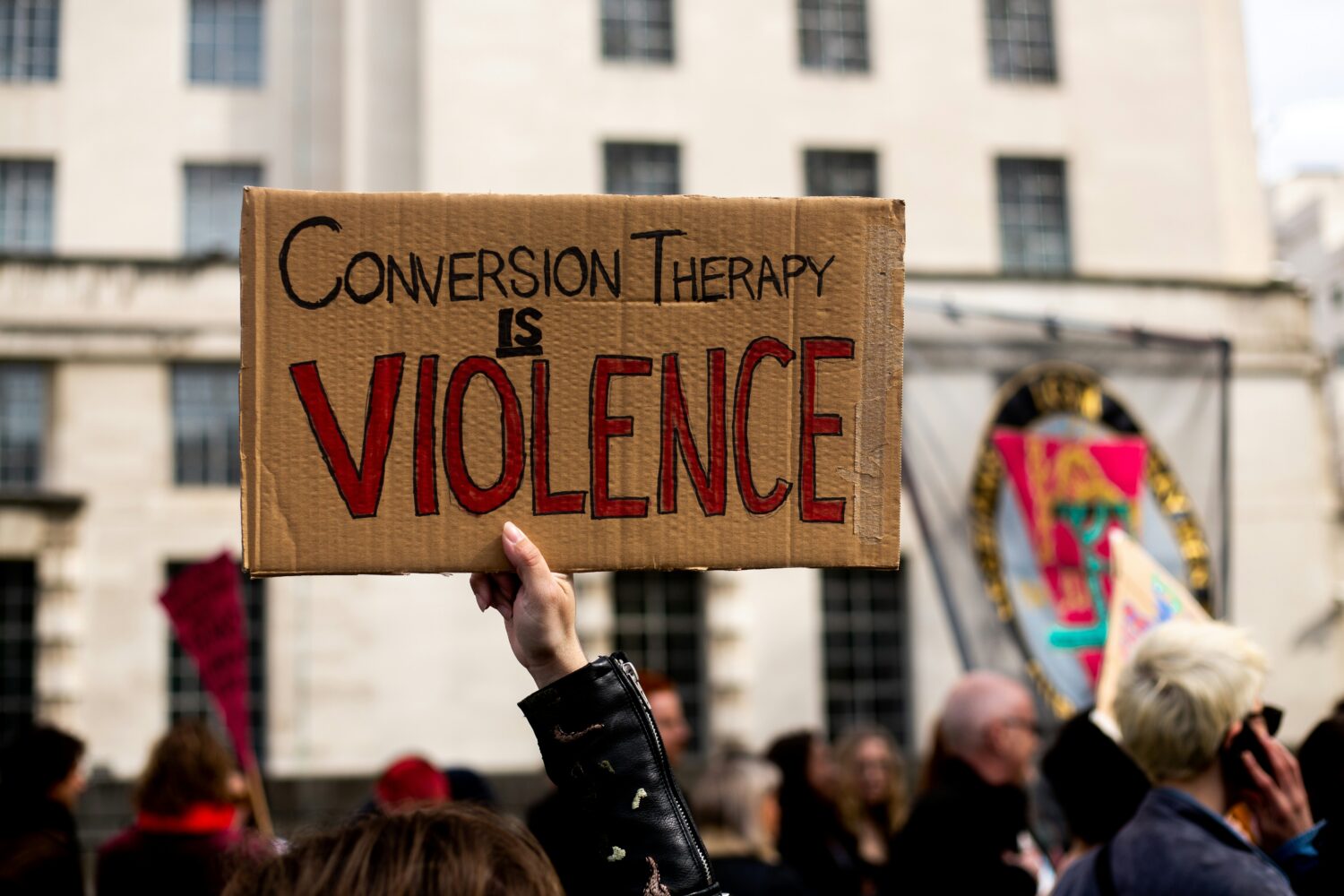The idea of “changing” someone’s sexual orientation or gender identity is not only unethical, but deeply harmful. Conversion therapy is more than a moral wrong — it’s an assault on human dignity.
When examining this coercive practice’s impact on the LGBTQ+ community, especially the message it sends to youth, it becomes clear that we are a people in crisis. The Trevor Project’s 2024 report reveals that 67% of LGBTQ+ youth experience anxiety, and 57% suffer from depression, highlighting the severe mental health challenges they face. This is compounded by the harmful practice of conversion therapy, which the American Psychological Association has long condemned for pathologizing natural identities. Despite this, conversion therapy remains legal through statutory absence or is even protected by law — as is the case in 22 states — leaving vulnerable LGBTQ+ youth exposed to coercion and additional psychological harm. When the government fails to protect your identity, your dignity, self-worth, and mental well-being are jeopardized.
This truth is self-evident; there is no need to debate conversion therapy’s violence to my community. My focus here is on affirming its fundamental illegality, violating core liberties enshrined in the U.S. Constitution. Laws banning conversion therapy are not only about safeguarding our public health, but upholding constitutional guarantees of liberty, equality, and personal dignity. The 5th, 9th, and 14th Amendments protect self-identity, bodily autonomy, and freedom from discrimination.
The constitutional protection of liberty further supports the case against conversion therapy. In landmark cases like Griswold v. Connecticut and Lawrence v. Texas, the Supreme Court has affirmed the right to make intimate, personal decisions free from government interference. In Lawrence, the Court ruled that the state “cannot demean their existence or control their destiny by making their private sexual conduct a crime.” Just as this case upheld the right to private, consensual relationships, bans on conversion therapy protect LGBTQ+ minors from coercive efforts to alter their identity. By seeking to change a core aspect of the individual, conversion therapy infringes on the constitutional protection of liberty.
Liberty, however, is not enough on its own. The concept of sexual dignity affirmed in Obergefell v. Hodges ensures that LGBTQ+ individuals are recognized and respected. The Court in Obergefell linked dignity to liberty, affirming that same-sex couples are entitled to the same respect in marriage as heterosexual couples. Conversion therapy denies LGBTQ+ individuals dignity by treating their identities as flawed, perpetuating the idea that they require correction. This violates not only their right to liberty, but the respect for their identity that the Constitution demands.
The case against conversion therapy uniquely rests on substantive due process protections embedded in the 5th and 9th Amendments. The 5th Amendment guarantees that no individual shall be “deprived of life, liberty, or property without due process of law,” while the 9th Amendment ensures that rights not explicitly enumerated in the Constitution are still protected. Substantive due process was invoked in the aforementioned landmark cases to safeguard fundamental rights, including the right to privacy and autonomy in making personal decisions. These rulings underscore that individuals have the constitutional right to make intimate decisions, such as defining one’s identity, free from external intrusion. Conversion therapy intrudes on these protections by exerting undue control over an individual, denying their right to self-determination and the freedom to make personal decisions.
The 9th Amendment furthers my point here by recognizing that the Constitution’s protection of individual liberty extends beyond the explicitly stated rights. This amendment enshrines the view that personal identity and bodily autonomy are inherent rights, fundamental to the liberty guaranteed by the Constitution. Conversion therapy, by attempting to forcibly reshape an individual’s core identity, disregards these unenumerated but deeply rooted rights. The state’s failure to prevent such practices amounts to an unconstitutional intrusion on personal liberty, violating substantive due process and undermining the protections guaranteed by the 5th and 9th Amendments.
The Equal Protection Clause of the 14th Amendment reinforces this argument. It prohibits states from treating individuals unequally under the law based on their identity. Conversion therapy institutionalizes discrimination by targeting LGBTQ+ individuals for “correction,” singling them out for unequal treatment, and perpetuating societal stigma. The practice itself is discriminatory, violating the Equal Protection Clause and undermining the constitutional promise of equality. By doing nothing, the state makes itself complacent. By doing nothing, states violate the Constitution.
International organizations, including the United Nations, have recognized conversion therapy as a violation of human rights, likening it to psychological torture, particularly when imposed on minors. By attempting to “correct” a person’s sexual orientation or gender identity, conversion therapy conveys a harmful message that certain identities are less worthy or valid. Regardless of whether the state protects this practice or merely permits it by inaction, it in effect extends differential treatment to heteronormative citizens or behaviors. The Constitution’s protections — particularly through the 14th Amendment’s guarantees of equal protection and substantive due process — safeguard the rights of individuals to live in accordance with their true identities. Conversion therapy fundamentally violates these protections, making its continued existence a profound injustice that must be addressed through laws that ban the practice.
The protection of sexual dignity and autonomy is firmly rooted in constitutional precedent. In Lawrence v. Texas, the Supreme Court upheld the right to private sexual relationships, free from state interference. In Obergefell v. Hodges, it affirmed that the right to marry is central to personal identity and self-expression. Conversion therapy stands in direct opposition to these rulings by attempting to suppress or alter a person’s sexual orientation or gender identity, denying them the sexual dignity and autonomy the Constitution guarantees.
Conversion therapy is not just morally wrong — it is unconstitutional. The state has both a moral and legal obligation to protect vulnerable individuals, particularly minors, from practices that violate their bodily autonomy, dignity, and fundamental rights. Legal bans on conversion therapy uphold the Constitution’s commitment to liberty and equality, ensuring that every individual, regardless of their sexual identity, is afforded the dignity and protection they deserve.
Senior U.S. Editor




